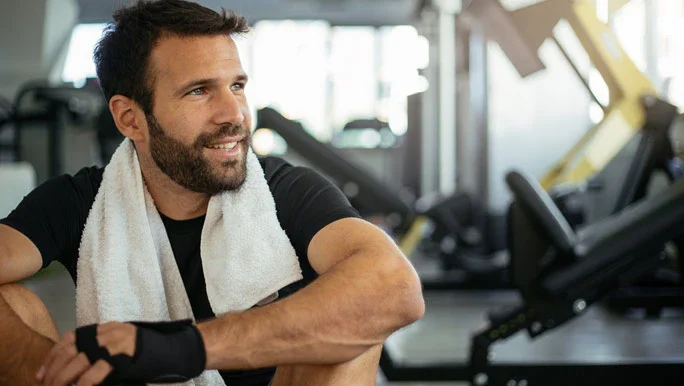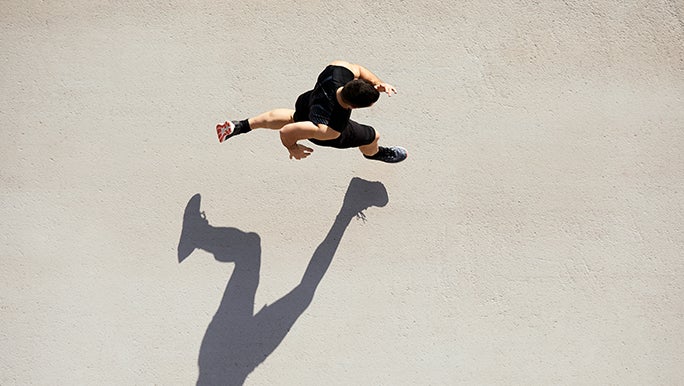Is it possible to overtrain?

For a lot of people, finding the time (and motivation) to exercise is a challenge. Life is busy, there’s SO much on the TV and sitting on the couch has become part of our daily routine.
But this isn’t the case for everyone. Each month thousands of people (presumably yourself included) search online with health questions about the effects, symptoms and signs of overtraining.
So, can you train too much?
Short answer – yes and no.
Long answer – What “too much” looks like between person to person varies dramatically.
One person’s cruisy 5km jog may be another’s marathon.
We asked personal trainer Gabrielle Petterwood this incredibly broad question and she offered this advice, “What’s important is recognising that you may have taken it too far. You need to listen to your body.”
There are real consequences of overtraining
Reduced performance, repeated injuries and disturbed sleep aren’t usually what springs to mind when you think about fitness goals.
So, if you’re at all concerned that you may be pushing yourself too hard when exercising, make sure you reach out to your GP and discuss your concerns.
Signs of overtraining
So, how do you know if you’re overtraining?
Gabrielle says, “If you're waking up and your muscles are sore, it's OK to change your schedule or not do the session that day.”
Gabrielle also suggests looking out for these signs if you’re concerned that you may be overtraining:
Lack of sleep
If you’re really tired all the time, it could be a sign that your body could use a bit more rest. And if you are having ongoing issues with your sleep, it’s best to chat to your health professional.
Injury
If you’re repeatedly pulling a hamstring or constantly getting a sore neck, you may be doing too much training involving those muscle groups. Be sure to speak to your medical professional if you have any concerns.
Deteriorating performance
Your performance should improve with training. If it doesn’t, there may be an underlying problem.
Getting sick more often
If you’re feeling really run down and getting sick more often than usual, it could be caused by overtraining, among other things.

How much exercise is too much varies between person to person.
Other health factors to take into account
In the case of people who aren’t elite athletes or marathon runners, some of these signs of overtraining may be helped by making some diet and lifestyle tweaks. They may also be signs of something else happening with your health - speak to your GP if you are concerned.
“Have a look at your diet and water intake and your performance, because they go hand in hand. You can't recover with a poor diet. Your muscles need certain things to recover properly and to repair the broken bonds from exercising,” says Gabrielle.
Related:
Gabrielle Petterwood is a Personal Trainer with a holistic approach to fitness, nourishing the body with fresh foods and living a healthy and balanced lifestyle to realise full body health.
Reviewed by the healthylife Advisory Board September 2021.